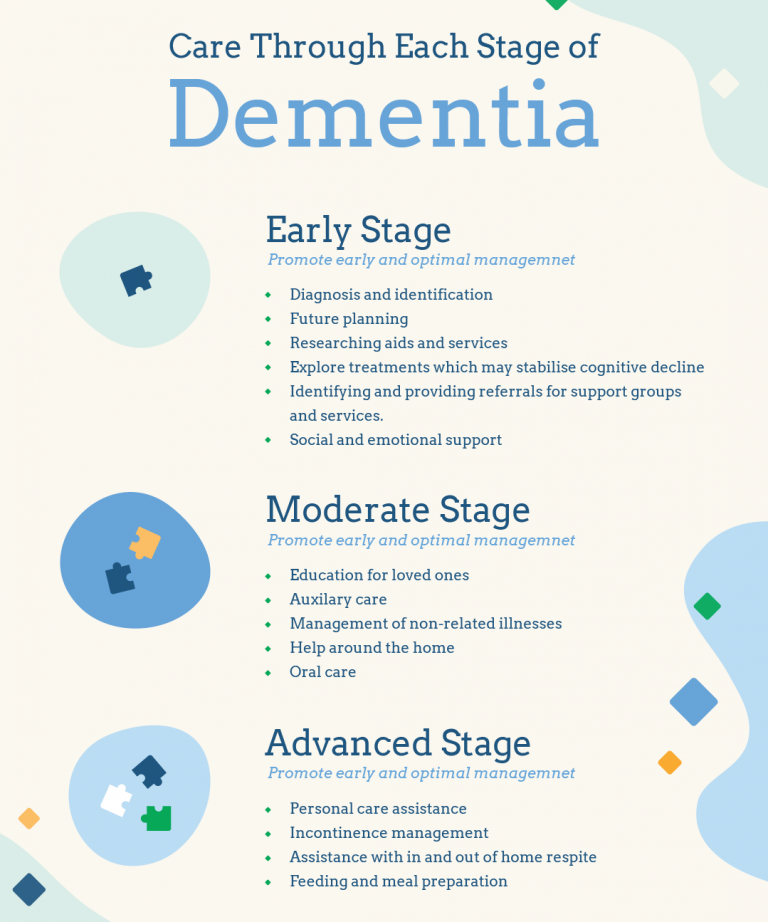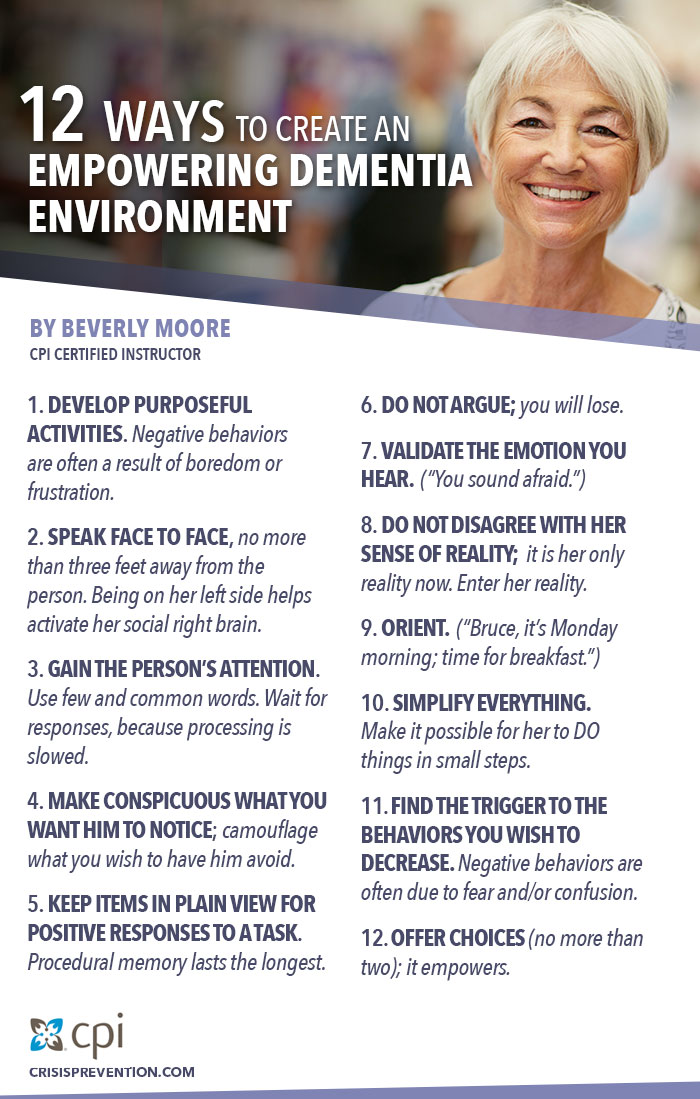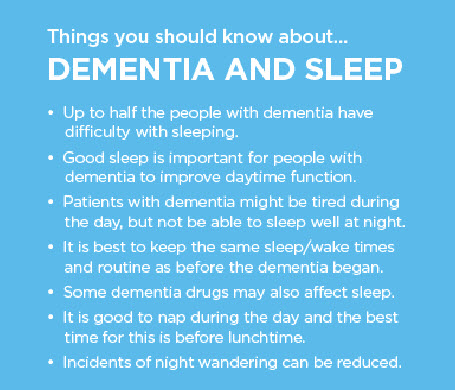God is our refuge and strength (Psalm 46:1)


The best way to start helping someone with Dementia is to understand what the condition actually is, and how this medical condition is physically impacting the person. Dementia is not just forgetfulness, it is a physical degeneration of the brain so that the brain’s normal functions are unable to be performed as they have in the past. In other words, as nerves in the brain die and are not replaced, the brain does not work as well as it used to, and gradually the actually size of the brain shrinks and more and more functional ability is lost. Memories - first short term memories and gradually long term memory as well; physical abilities such as walking and talking and swallowing may be lost – it just depends on which area of the brain is impacted by nerves not functioning as they did previously.
What does this mean to the person experiencing the loss of function? For the most part, absolutely terrifying! Grief. Frustration. Worry about the impact on the family. Financial concerns. It’s not difficult to imagine, and when one understands how the person with the onset of Dementia must be feeling, then one is more patient and sympathetic in one’s interactions with them.
Let’s have a look at some strategies:
-
Be kind (fruit of the Spirit).
-
Be very patient (fruit of the Spirit).
-
Understand they cannot “learn” like a child is able to, who’s brain is growing and developing. This person’s brain is shrinking and dying.
-
Be respectful. The person is NOT a child, even if their behaviour is childish. They cannot help it. Do not patronise them or ridicule them.
-
Be loving (Fruit of the Spirit). Even if they cannot understand what you’re saying or doing, they can understand how you make them feel. Treat them as you would Jesus – “as much as you have done it unto the least of these my brethren, you have done it unto me”.
-
View things from their perspective: how would you feel if you couldn’t remember something – a word, a name, an event? How you would feel if a stranger (someone you didn’t recognise) was touching you, talking to you, giving you instructions?
-
Gentle touch on a hand or a shoulder can be very reassuring.
-
Encourage them to communicate with you.
-
Do things together that are deeply familiar: praying, breaking bread, Bible Readings, singing, walking together – whatever was/is important to them.
(I looked after a brother with Dementia who was beyond excited when his wife brought in his Bible in it’s leather case. He was so proud to show it to everyone and wanted me to sit and read it to him every time he saw me. I found it so beautiful that this was the most important thing to him, other than his wife visiting. What an example to us all!)
-
Distract them if they are bored, irritable or anxious.
-
Be comforting and reassuring rather than bossy and ‘lecturing’.
-
Give them food they know and love.
-
Never force them to do something.

Communication
-
Always introduce yourself.
-
Speak slowly and clearly. Short, simple sentences.
-
DO NOT ARGUE or try to reason with them. Generally, the capacity to reason is lost, and if they think it is red not blue, or Tuesday not Saturday, it’s really not important. Arguing upsets them because they’re fearful of angry voices or of being wrong AGAIN, or confused again. Let it go.
-
Make eye contact with them and encourage them to look at you when either of you are speaking. Stop what you’re doing and given them your full attention.
-
Give them time to respond – don’t interrupt them, even if you think you know what they want to say.
-
Let them speak for themselves as much as they are able, in discussions about their own health and wellbeing.
-
Acknowledge what they have said, even you don’t understand what they are saying, but rather encourage them to explain further, if they can.
-
Avoid topics you know will upset them.
-
Give them simple choices – not too long or complicated options.
-
Rephrase questions so they can give simple answers.
-
Repeat their answers back to them to ensure you have an accurate understanding.
-
Minimise distractions (TV, radio, background noise), especially if they already have hearing problems.
-
Don’t say “I told you so!”
-
Don’t say “Do you remember . . .?” Rather ask them to tell you about something (even if you’ve heard the story before). “Tell me about where you grew up?” “Tell me how you met your husband?”
Here are some commercial posters that summarise some issues very helpfully:

Vital Home Health Services, Sydney

Crisisprevention.com

Sleep Health Foundation
Would you like to contribute on this or any other topic? Please do! You can use the Contact Us form.

